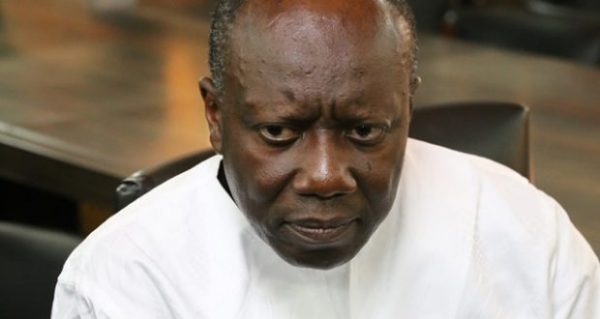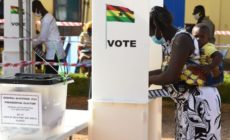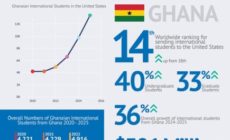International validators from the Extractive Industries Transparency Initiative (EITI) are demanding that theGhana’s National Oil Company retrieves the loan or produces an agreement that spells out the time and terms of repayment before September 2018.
The EITI is a global benchmark for the transparent and accountable management of extractive resources. The EITI Standard requires countries and companies to disclose information on governance of oil, gas and mining revenues.
If there is no clear repayment plan by the scheduled time, Ghana would fail to achieve EITI compliance and the consequences will be dire, in terms of the country’s economic competitiveness and ability to attract Foreign Direct Investments (FDIs).
Failure to meet the deadline could affect the country’s competitiveness in attracting FDIs as Ghana would not be seen as a clean country to do business, Co-chair of the Ghana Extractive Industries Transparency Initiative (GHEITI), Dr Steve Manteaw says.
According to Dr Steve Manteaw, “If we don’t act swiftly,we risk being marked down by the EITI Secretariat.”
If by the next validation in September this year, we do not have an agreement and the money has not been paid back it can affect Ghana’s fortunes.
Dr Manteaw made the disclosure at a discussion of the 2015 EITI Ghana report with member journalists of the Institute of Financial and Economic Journalists (IFEJ), under the sponsorship of the German Development cooperation (GIZ) in Accra.
In accordance with EITI requirement 2.6 (a), Ghana’s EITI reports must include an explanation of the prevailing rules and practices regarding the financial relationship between government and State Owned Enterprises (SOEs) in respect of rules and practices governing transfer of funds between SOEs and the state.
Non-payment of the money since 2013 smacks of corruption
According to Dr Manteaw, “this is part of the corrupt practices in developing countries that produce oil where even though government has the resources to finance the construction of roads it uses the national oil company to finance the roads.”
When GNPC was found to have indulged in this practice, red flags were raised and Ghana was marked down.
The development came to the attention of the EITI Secretariat during the last validation.
$50m allocated to construction of Western Corridor roads
The $50million ‘loan’ was to be used to construct the Western Corridor roads which lead to the Atuabo Gas Processing Plant, the purpose of which was to facilitate the evacuation of gas to the plant.
According to Dr Manteaw, the national oil company contended that “the gas belonged to them, the roads are in a poor state so if the roads were not constructed there was no way they were going to be able to evacuate their gas to the market.”
But Dr Manteaw maintains that road construction is not the business of GNPC so if its money was being used to construct the road, there should be an agreement to show the money will be paid back.
At the time of the 2016 elections, since the concerns were raised, an agreement was quickly drafted but was never signed and the then government left office.
GNPC questioned for explanation
Dr Manteaw said there was a query from the EITI international validators seeking to know how come government could take money from a state oil company.
The validators were led by the GHEITI team to GNPC for explanation. The Corporation then said it was a loan given to the Ministry of Finance since according to GNPC government had no money for the projects.
“The international validators demanded to see the loan agreement covering the release of the money but GNPC was unable to produce the agreement,” Dr Manteaw disclosed.
The transfer of funds from GNPC to the Ministry of Finance was marked against Ghana, reason being that “in some countries of the world national oil companies are used for quasi fiscal expenditures where they do things that governments have to do meanwhile they are not government.”
$17.94 paid out of $50m to GNGC- PIAC
The 2014 Annual Report of the Public Interest and Accountability Committee (PIAC) revealed that an amount of US$17.94 million was taken from the $50million and given to the Ghana National Gas Company (GNGC) in 2014 as additional capitalisation.
According to PIAC, the quantum of GNPC’s utilised funds would have been more than 50 per cent of the allocated funds in 2014 and the accumulated funds in excess of US$230 million but for the advance payment made to the MoF.
Other activities of GNPC that raised questions
GNPC also gave guarantees for purchase of fuel for Karpowership and for maintaining reserves for the Bulk Oil Storage and Transportation (BOST)
Ghana escaped suspension
The delay in producing the 2015 report has been a great source of concern for the MSG as Ghana risked being suspended from the EITI.
A request for an extension of the deadline for both the report and validation was granted on the grounds of circumstances that made it difficult to produce the report on time.
The EITI at its Board meeting in March, 2018 extended Ghana’s deadline for producing the report to May, 1 2018, and to undergo a second validation in September, 2018.
Ghana’s last EITI validation was conducted in 2016, following which the country was adjudged by the EITI Board to have made “meaningful progress.”











 (Selorm) |
(Selorm) |  (Nana Kwesi)
(Nana Kwesi)